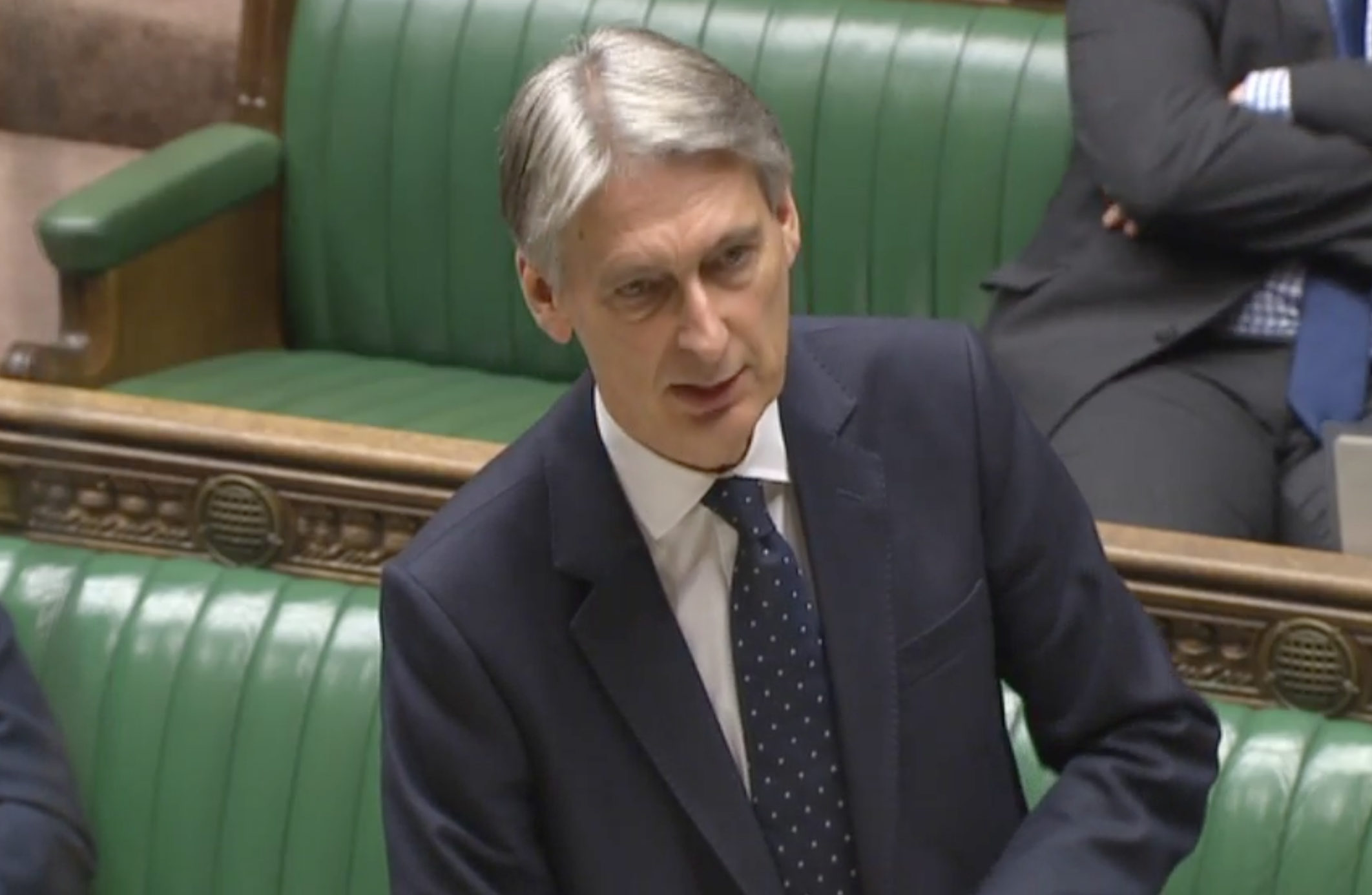The Chancellor will face an £84 billion black hole in the country’s finances at the Autumn Statement unless he announces a sweeping “fiscal reset” and ditches George Osborne’s old economic rules, economists have warned.
An analysis by the Resolution Foundation think-tank found that changes in the economic outlook since the EU referendum mean a significant “deterioration in the public finances”.
The advice from the researchers comes a day after leaked Treasury documents suggested Philip Hammond would have to fill a multi-billion pound black hole because of the “severe worsening of public finances” caused by Brexit.
In the latest warning, economists at the Foundation applied the average change in independent economic forecasts to the latest OBR projection from March 2016.
They found that this would leave an £84 billion additional borrowing across the five year forecast period to 2020-21. The annual gap would be £23 billion by 2019-20.
The leaked Treasury documents warned of an annual £16 billion gap next year – suggesting Treasury economists broadly concur with the direction of the Foundation’s figures.
The Foundation economists note that trying to close the black hole with more spending cuts or tax rises in the face of new economic headwinds could depress growth even further.
Matt Whittaker, chief economist at the Resolution Foundation, said:
“Despite the long-term impact of Brexit remaining very uncertain at this stage, there is a strong consensus among economists that post-referendum uncertainty will lead to deterioration in the public finances, which were coming in below expectation even before the referendum.
“We won’t know the OBR's verdict until 23 November but our analysis shows that the Chancellor may face a new £84 billion borrowing black hole and the prospect of breaking the fiscal rules inherited from his predecessor.
“Rather than announcing very significant further tax rises or spending cuts in the face of renewed economic headwinds, the Chancellor is right therefore to press the fiscal reset button and set a new economic course for the remainder of the parliament.
“The good news for Philip Hammond is that by softening his fiscal target he has significant political and economic room for manoeuvre. The leeway created by a new set of fiscal rules could afford the Chancellor the opportunity to make his mark on two key themes of the new government – boosting investment and helping ‘just managing families’ by reversing the social security cuts that are set to squeeze their incomes.
“But the trade-off for this approach is significantly higher borrowing in the coming years. The Chancellor will need to decide if that is a price he is prepared to pay for adjusting to new economic times and setting out a direction for the new government.”
The Autumn Statement, a miniature budget and Mr Hammond’s first budgetary statement since becoming Chancellor, will be delivered on the 23 November.
A Treasury spokesman said: “The Chancellor has been clear that, while the deficit has been cut, it is still too high.
“The Government is committed to balancing the books over a sensible period of time, in a way that allows space to support the economy.”

Join our commenting forum
Join thought-provoking conversations, follow other Independent readers and see their replies
Comments